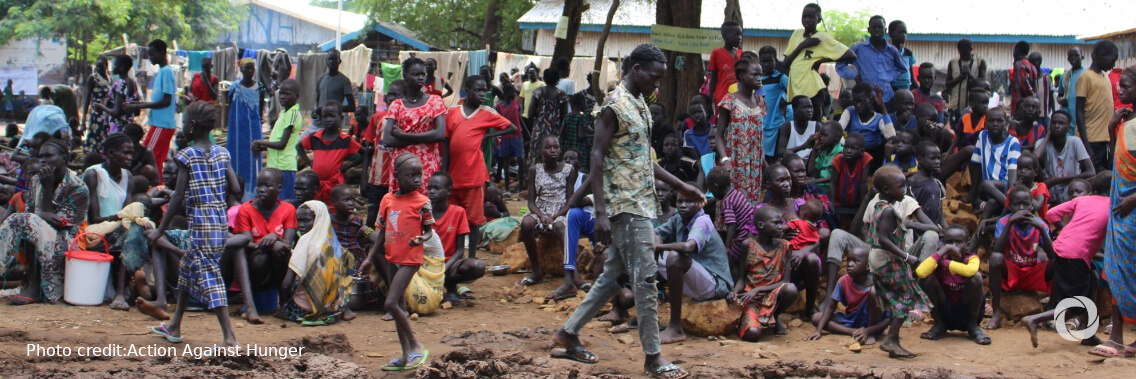With global attention focused on the conflict in Ethiopia’s Tigray region, another crisis is unfolding in the country’s west. In February, the number of refugees and asylum seekers doubled in Pagak Reception Center on Ethiopia’s border with South Sudan, driven by conflict, food insecurity, and flooding in South Sudan.
A temporary receiving area the size of two soccer fields, Pagak is overcrowded and ill-equipped to handle the significant water, sanitation, health, and food needs of the more than 16,000 people currently seeking refuge there. Action Against Hunger conducted a mass screening of 1,979 refugee children younger than five years old in the Pagak Reception Center from February 17-19, 2021. The new data shows that 20.8 percent of the children were acutely malnourished, including seven percent diagnosed with severe acute malnutrition, the deadliest form of hunger. This prevalence is more than double what the UN Refugee Agency considers a serious public health emergency.
Many of the new refugees and asylum seekers arrive malnourished, after traveling for several days or even weeks. According to Action Against Hunger, more than 70 percent of people in Pagak are women and children.
“It is a dire situation,” said Abdulwasi Yusuf, Action Against Hunger’s Field Coordinator for Ethiopia’s Gambella region, where Pagak is located. “Food supplies are extremely limited, and many refugee mothers have resorted to foraging in nearby forests for wild leaves and nuts to eat and feed their children. With no place to shelter, many families are exposed to the blazing sun and other elements all day and night, without relief.”
Pagak has substandard water and sanitation services, lacks a hospital, and has little capacity to provide other essential support. Conditions in the congested reception center make the outbreak and rapid spread of diseases, such as cholera and COVID-19, a real and dangerous possibility. Many refugees need additional medical treatment for malnutrition or other health issues, yet the nearest health center is more than 10 miles away, with no reliable transportation system.
Action Against Hunger is calling on the Government of Ethiopia to resume registration for refugees and asylum seekers, which would allow authorities to resettle thousands of vulnerable families in Pagak to official camps. Its teams also are providing lifesaving nutrition treatment to young children in Pagak and, with support from the World Food Program, UNICEF, and the UN Refugee Agency. The organization is distributing high-energy biscuits to children, pregnant women, and breastfeeding mothers and has scaled up its emergency nutrition program.

